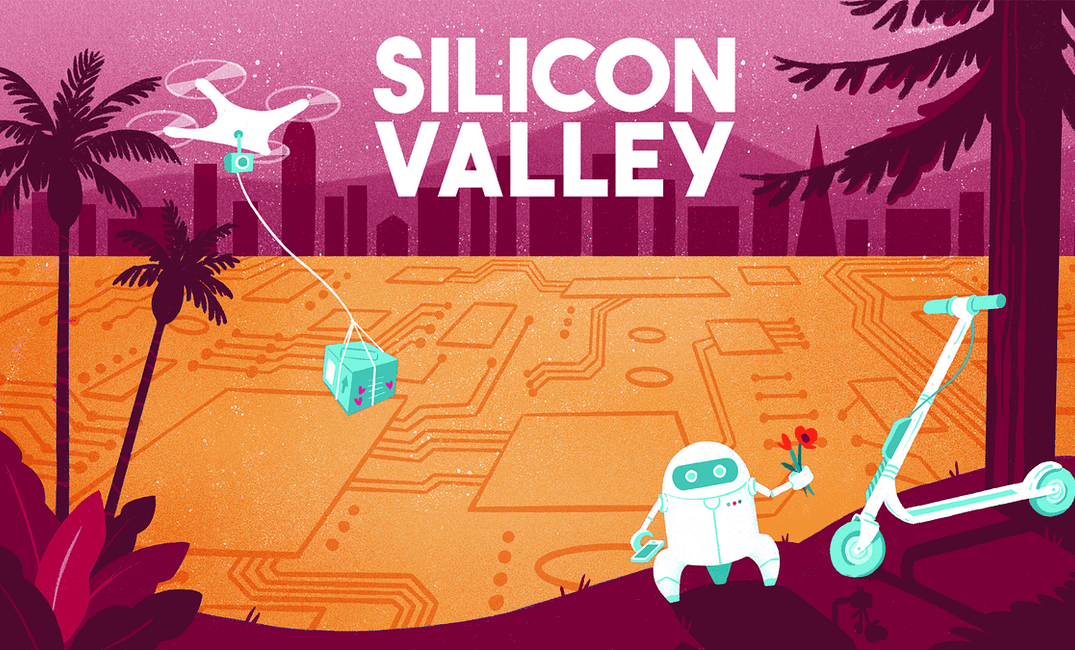The Weirdest Shit to Come Out of Silicon Valley
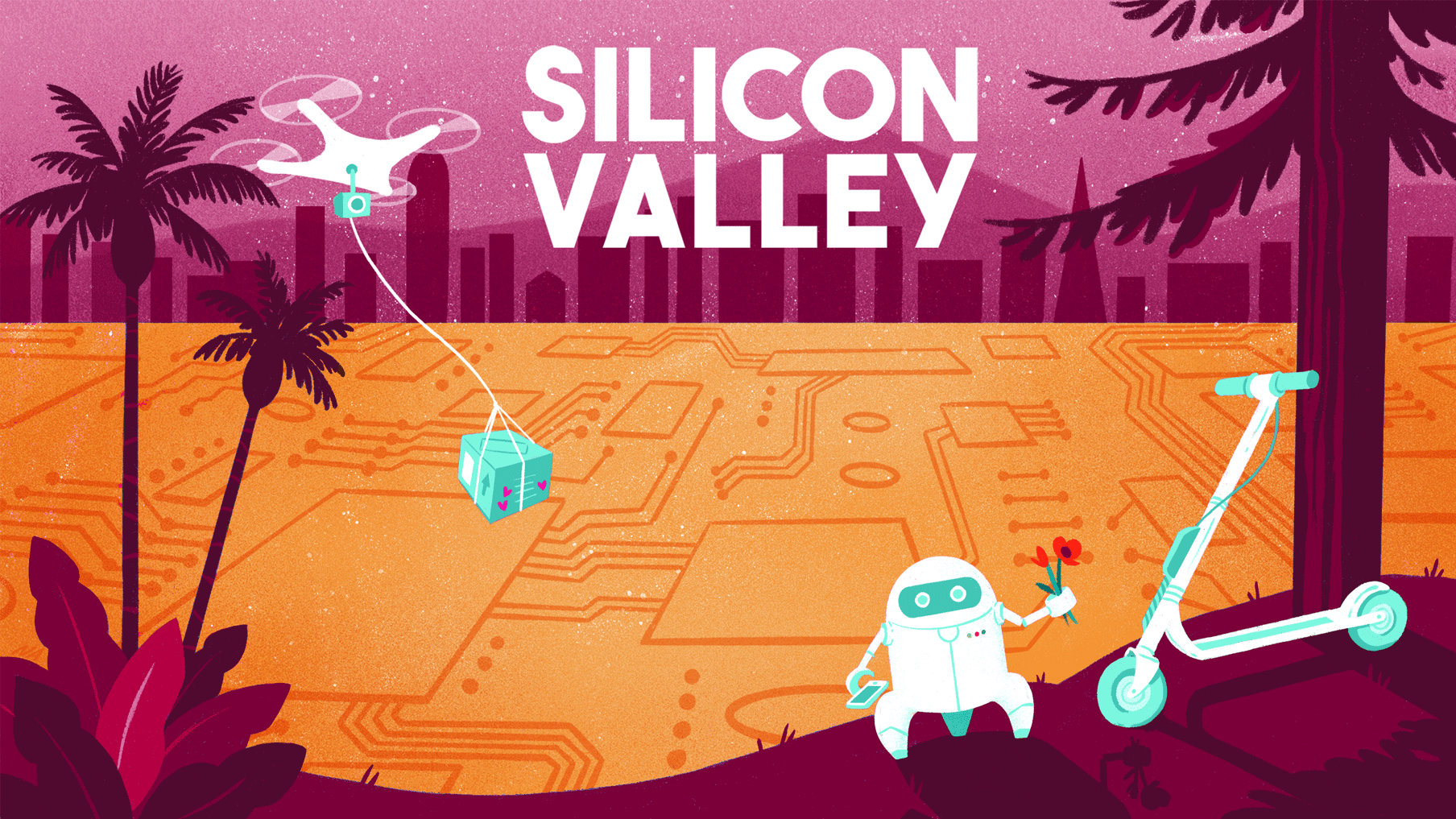
As another month rolls by, all I can say is that 2021 can’t come soon enough. I think everyone’s missing their friends, family, and the idea of stress-free air travel. Yes, I know that 2021’s likely to be a clusterfuck, too, but we have to hope, right?
On the plus side, investment in climate technology is up, my young adult book The Future Of Science Is Female is out, and I’m looking forward to the onslaught of startup-memed Halloween costumes in late October.
In honor of Halloween, this month’s game of Two Truths and a Lie, the Silicon Valley Startup Edition, has a spooky A.I. slant.
Out of the following three A.I startups, which one is fake?
- A company that makes super smart humanoid avatars for customer service purposes.
- An A.I. that listens to your conversation and recommends better things you can say in real time.
- An A.I. that tracks your toilet sounds and provides you with a health analysis.
(Scroll to the bottom for the answers.)
Sign up for The Bold Italic newsletter to get the best of the Bay Area in your inbox every week.
Now, let’s get into the weird shit.
Know of some ridic stuff happening in tech? Email, DM, or tweet me to include it in next month’s edition.
The picky eater payoff, app style
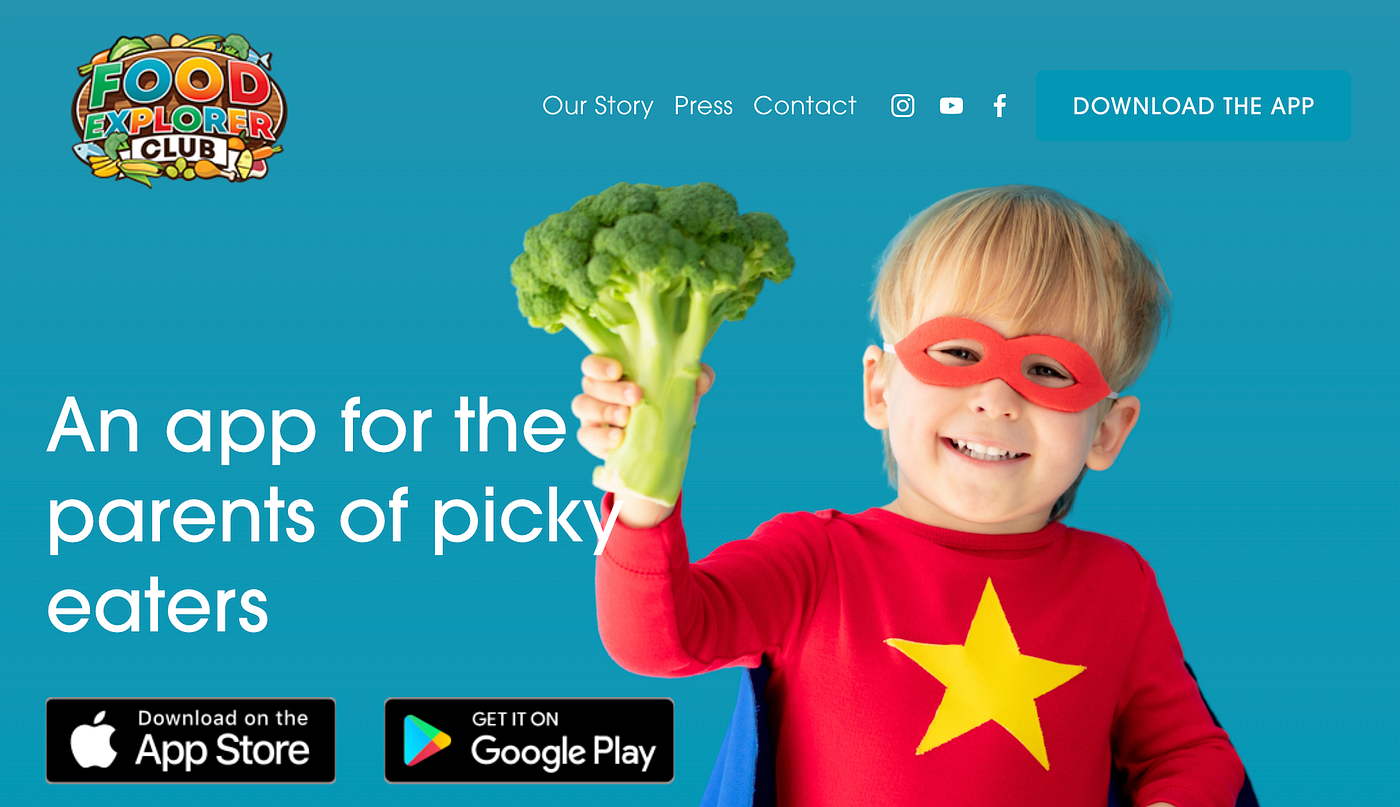
Looking back, I must have been an absolute terror as a kid. I wouldn’t eat the crusts on my bread, I wanted cereal for dinner, and while I liked apples and other fruit, they had to perfectly spherical with not a single mark, or out they went. All perfectly reasonable requests, I thought — but two decades on, and I’m upgrading my folks from unreasonable to saintly. Around 26% of the population are picky eaters — I’m still one, hence my Washington Post treatise on the subject — which is annoying for parents at the best of times, but in a pandemic, it just adds that extra frisson of unnecessary stress.
Enter the world of apps for kids who are picky eaters, which help defuse mealtimes. Top of the bunch is The Food Explorer Club, which attempts to change picky eater’s habits by gamifying their palate: Kids earn badges for trying new foods and parents can translate these into IRL rewards — more V-Bucks for Fortnite, and so on. The app launched last year, but during the pandemic, it has seen a surge in downloads. Other workarounds are subscription food boxes that cater to the fussiest of eaters. NYU Langone Medical Center created a free-to-use Picky Eater tracking app, so parents can monitor if their child is just finicky or if there is a real cause for concern.
U.S. Border Protection’s super awk counterfeit earbud bust
It’s tough to work the border these days with ridiculous mandates being passed down from HQ (aka the prez) alongside monitoring drug smugglers, taking people’s temperatures, and working with Covid sniffer dogs. So when you get a win, you really want to celebrate it — blast it over social media, tell your pops, you know. But the U.S. Customs and Border Protection should really do their due diligence to avoid any cock-ups — like proudly announcing they’ve seized $398,000 of counterfeit Apple AirPods… when they actually seized OnePlus buds, reported The Verge. In case you didn’t know, OnePlus is a perfectly legit company, and while their wireless earbuds are white and in a white case, so are Samsung’s Galaxy Buds, and many, many more. The boxes seized even say “OnePlus” on the side of them.
Their statement makes it even worse — they’ve dug their own hole.
“CBP Officers are protecting the American public from various dangers on a daily basis,” said the director of CBP’s New York Field Operations. “The interception of these counterfeit earbuds is a direct reflection of the vigilance and commitment to mission success by our CBP Officers daily.”
Luckily, OnePlus was amused. #CringeComedy
Civvl, the Uber for evictions
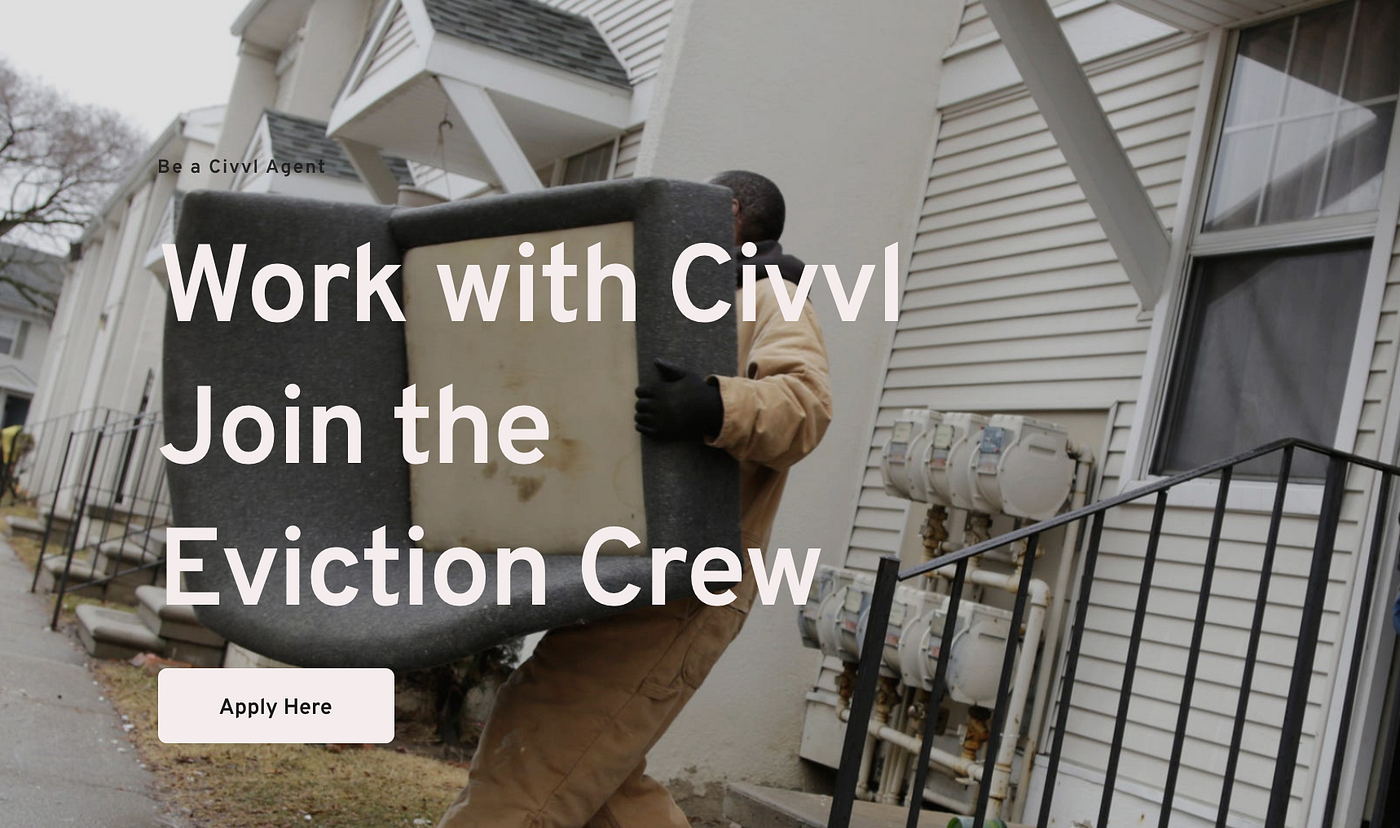
It’s a shitty time for everyone right now, with skyrocketing unemployment, small businesses on the precipice of disaster, with many tenants and landlords unable to pay their rent or mortgages. Enter Civvl, a startup that’s aimed at making on-demand evictions a lot simpler for the latter, reports Vice. “There is plenty of work due to the dismal economy,” the startup says in its employment ads.
Yes, you heard that right. Basically, pure evil.
Civvl, which is an offshoot of gig economy company OnQall (services include on-demand lawn mowing and house cleaning) works by hiring independent contractors to serve and process papers, connecting junk haulers, and hiring contractors to perform property closeouts. Civvl contractors pay $35 a month to use the company app, and get paid up to $125 an hour (with 30% of all pay going to Civvl). What they’re doing skirts the gray area of the law — there’s an eviction moratorium on right now — but not all tenants will know they need to sign a declaration form to opt in to this. Saying it’s disgusting — how the company turns people scared of losing their own home into heavies who help other people lose theirs — is a massive understatement.
From pizzabot to pasta-bot
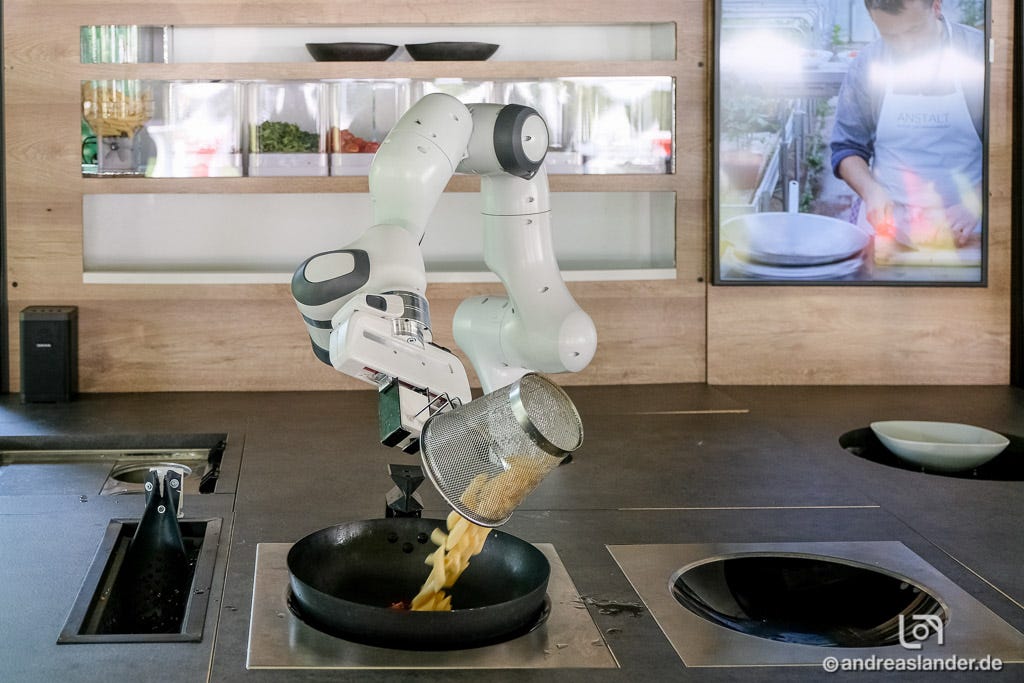
We’re at the inflection point where food service robots go from cumbersome finicky designs to providing cutting edge culinary delights. Over the last few years, I’ve supped oat milk lattes mixed by the robot baristas at Cafe X, chowed down on pizza put together by bots from Julia Collins’ former startup, the now-defunct Zume Pizza, and eaten a piping hot baguette fresh from the Breadbot. As a certified kitchen klutz (there’s a reason people love those subscription food boxes) I welcome new additions to this space, but the pasta-bot leaves me puzzled. I know businesses are struggling and contact-free cooking and delivery is definitely a selling point, but… pasta? The staple starch of college students' diets?
Well, yes, if the DaVinci Kitchen Kiosk, a German startup that was showcased in TechCrunch’s Startup Battlefield in September has anything to say about it. They’re hoping their pasta-bot delivers more than an “average” (if that’s even a thing) pasta robot experience. Their machine includes a fresh pasta extruder, space for 15 ingredients as well as a spice rack, two burners, a booking station, a rinsing station, and an articulating mixing arm. Users can opt for a preset dish, or create their own. Dishes can be ordered via their app, if the idea of watching pasta boil via robot isn’t a compelling enough reason to come early. Each dish takes around six minutes to cook and serve. I’m not convinced, but they have an answer to that: “Everyone has to eat,” DaVinci Kitchen’s CTO, Ibrahim Elfaramawy tells TechCrunch. True dat.
Quip gamified toothbrushing for adults
![“Earn rewards for all those good habits… [description of how to use a Quip]” next to illustration of the Quip app on a phone.](https://www.thebolditalic.com/content/images/2025/11/1-xdk-msfoycdzyrac7yla5a.png)
I know what you’re thinking — annoying high-tech toothbrushes have been gamifying dental hygiene for YEARS. There’s the Brushbuddies toothbrush, released in 2011, where an annoying cartoon voice ordered children how to brush for two minutes. They also came out with a more palatable singing version that same year — say hello to the Justin Bieber toothbrush. Philips Sonicare toothbrush has had a timer app since 2016, and stand-alone timers since 2008 or so — all to up the ante on swizzling for longer. In 2018, Colgate released an AR app that provides brush-specific games kids can play at the sink and rewards players with digital badges.
But this market has just leveled up, reports Magdalene Taylor for Mel Magazine. Quip, who’ve been making smart brushes since 2014, recently announced a reward system for “good” toothbrushers who use their $65 model — and by rewards, I mean real rewards, like $5 gift cards from Target and so on, alongside Quip swag and free brush heads. Users accumulate points for daily brushing and brush “streaks” which can be spent on these rewards. Basically, they’re rewarding adults, not kids. We like free shit, too. Colgate quickly followed suit with their new Hum brush, but it looks like their rewards are just free brush heads and the like. Boooring.
Atomo’s lab-grown coffee

In the age of lab-grown meat, pea milk, and plumcots and apriums, it’s time for us to pontificate on the real meaning of food. Does the “meat” moniker need to relate to the killing and disseminating of body parts to be meat, or is the idea of meat, a juicy mouthful of textured protein that releases the caveman deep inside? Or does it means the taste of meat… but then if you’ve only eaten lab-grown meat or plant-based meat?
Basically, what even is meat anymore? (For a more thoughtful discussion on this, check out Technically Food by Larissa Zimberoff.)
With the above in mind, let me direct you to the startup Atomo, who’ve just raised another $9 million round for their molecular coffee, reports Zac Cadwalader for The Sprudge.
Essentially, Atomo’s reversed engineered the coffee bean to make a bean-free coffee, which brings the question to mind again: What is coffee? The taste? The chemical hit to the brain? The heady smell of burning rich java? The no longer bean-based drink is made from “pits, seeds, stems, and leaves” from U.S. farmers — the shit farmers chuck away, they say, and they’re taking that chaff and making bean, or something. Honestly, it feels like there are so many startups now that use “farm waste” to do shit, including Natural Fiber Welding, an awesome Peoria, Illinois-based startup that turns their collected farm scraps into plant-based leather. Anyhoo, Atomo collects this stuff, washes it, performs what they call “alchemy” — look it’s science or its magic, let’s not be cute — and then roasts and brews it. Voila! A bean-free brew.
The company is using this round to launch a 12,000 square foot bean-free Seattle roastery, which they say will — I kid you not — hack the coffee bean and bring about the “future of (coffee bean-free) coffee.” Their premises is set to open early 2021, and is around the corner from Starbucks HQ, which is either incredibly ballsy, or priming themselves for acquisition. “Alternatively, you could, at this very moment, enjoy a wonderful cup of actual coffee, produced by a farmer who was paid an equitable wage and lovingly roasted by a local small business who can probably use your business right now,” comments Zac Cadwalader.
Atomo’s website answers the philosophical question on their FAQ: Can you call this coffee? Yes, they say, since coffee does not have the same naming challenges as alternative beef or alternative milk because the FDA has no standard of identity for coffee. K then.
Answers to Two Truths and a Lie: The toilet plopping startup is the fake one. New Zealand-based Soul Machines makes the interactive A.I. avatars, and Chorus.ai makes the real-time conversation analysis program.



